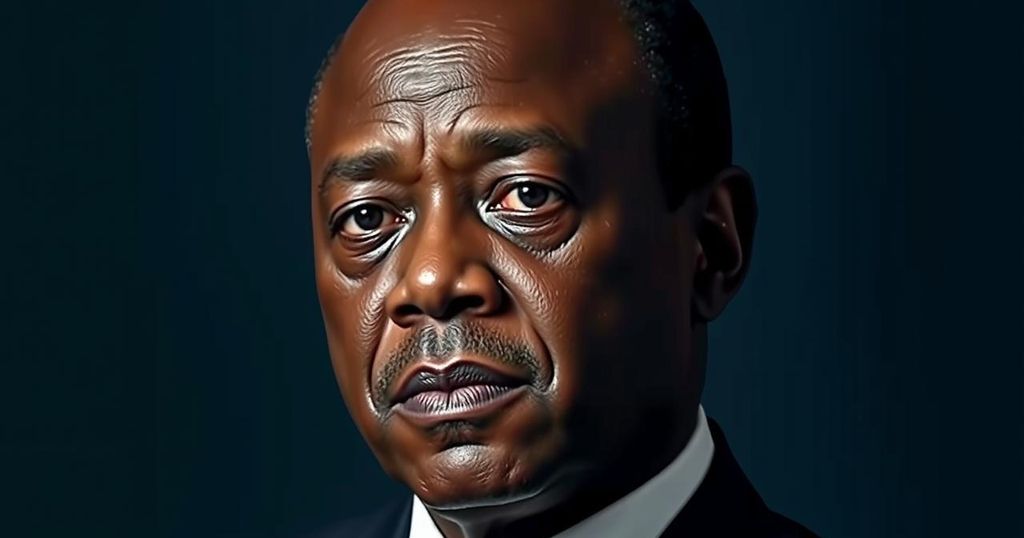Controversy Surrounds Proposed Constitutional Review in DR Congo
The Democratic Republic of Congo is contemplating a constitutional review that may extend President Felix Tshisekedi’s term. This move has raised alarm within the opposition, fearing it is a tactic for Tshisekedi to retain power. Tshisekedi advocates for a constitutional reform that reflects Congolese nationalism, while opposition leaders oppose any changes, asserting it could jeopardize democracy. The Catholic Church has also cautioned against potential destabilization arising from such revisions.
The Democratic Republic of Congo (DRC) is currently evaluating a potential constitutional revision that could extend President Felix Tshisekedi’s time in office. Augustin Kabuya, Tshisekedi’s key advisor, has stated that the current constitution displays deficiencies in the governance of public power. The proposition of this constitutional review has incited apprehension among opposition groups, who fear it may be exploited to prolong Tshisekedi’s presidency beyond his second term, which is constitutionally limited to two terms. In recent statements during his tour of Kisangani, President Tshisekedi emphasized the need for a constitution that aligns more closely with the Congolese ethos, arguing that the existing document, established after a 2006 referendum, was created under foreign influence and does not accurately represent Congolese nationalism. He declared his intent to establish a national commission next year comprised of Congolese experts from various fields tasked with drafting a renewed constitution that reflects local realities. While the President claims that ideally, the people should decide on any alterations to term limits, members of his party, the Union for Democracy and Social Progress (UDPS), have hinted at the notion that the President’s term may effectively extend beyond the official five-year limit due to the delays associated with government formation and election preparations. Recently, Tshisekedi pointed out the inefficiencies within the current constitutional provisions, indicating that they hinder governmental operations, stating, “We need a constitution that will not handicap the functioning of the institutions.” As the discussion unfolds, the opposition, led by figures like Olivier Kamitatu and Martin Fayulu, has united in staunch opposition to any proposed amendments, claiming that the motivations behind the push for reform primarily serve the interests of President Tshisekedi and his associates. Kamitatu remarked on the potential for unconstitutional longevity in Tshisekedi’s regime, while Fayulu asserted his commitment to safeguarding the current constitution against any changes, emphasizing, “We are going to prevent Tshisekedi from touching our constitution.” The Catholic Church, through the National Episcopal Conference of Congo, has also voiced concerns, advising against constitutional revisions, warning that such actions could exacerbate national instability. Bishop Donatien Nshole expressed apprehension regarding the self-serving motivations of current politicians, urging caution in these deliberations.
The Democratic Republic of Congo’s constitution was ratified in 2006 with the intention of establishing stable governance after years of turmoil marked by violence and political strife. Historically, notable figures such as Joseph Kabila and Étienne Tshisekedi have shaped the political landscape surrounding constitutional discourse, particularly when previous attempts at reform sparked significant opposition fears of entrenched power. The current deliberations mark a shift from the opposition’s past resistance against the Kabila administration’s proposed constitutional changes to the current governing party’s advocacy for reform. This context illustrates the cyclical nature of political maneuvers in the DRC, reflecting ongoing tensions between governance aspirations and democratic ideals.
In summary, the Democratic Republic of Congo’s consideration of constitutional amendments has ignited significant controversy among political factions. President Tshisekedi’s administration advocates for a revamped constitution purportedly to better accommodate Congolese society, while the opposition firmly contends that the real aim is to facilitate an extension of presidential tenure. Given the historical complexities surrounding constitutional revisions in the DRC, the outcome of this debate will undoubtedly carry profound implications for the nation’s democratic fabric. As political leaders and citizens alike engage in this critical dialogue, the stability of the country remains at the forefront of concern, underscoring the need for careful deliberation.
Original Source: www.monitor.co.ug




Post Comment